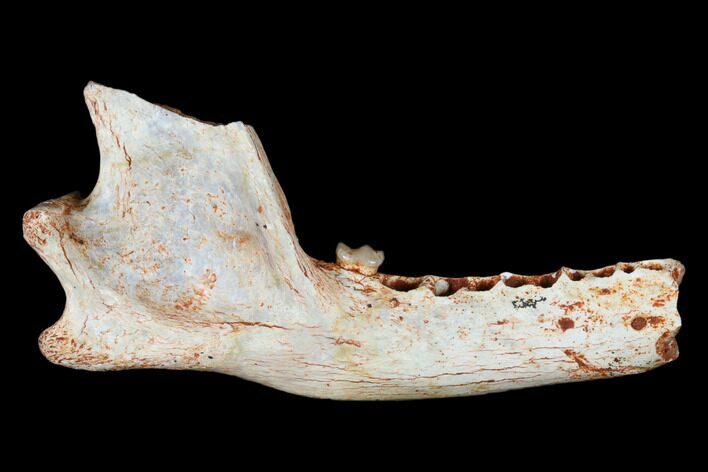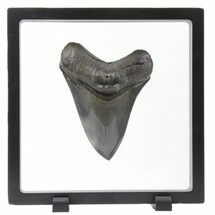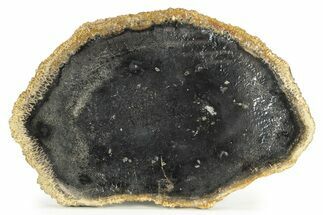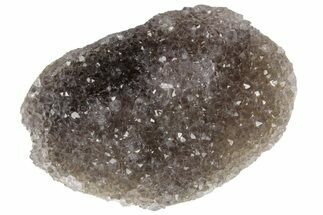This Specimen has been sold.
2.5" Oligocene Fossil Hemicyonine Bear (Cephalogale) Jaw - France
This is a 2.5" long, partial jaw from a Hemicyonine bear, also known as "bear dog" of the family Hemicyoninae (species - Cephalogale minor) that was collected from Pech du Fraisse, France. It is Upper Oligocene in age, or approximately 28 million years old. There is no repair or restoration to this partial jaw. A tooth is still preserved within the back of the jaw.
Cephalogale is an extinct genus of Hemicyonine Bear/"Bear Dog" that inhabited North America and Europte from the Oligocene to the Early Miocene, existing for over 20 million years. Bear Dogs earned their name for their mix of dog and bear-like characteristics. They were about the size of modern day coyotes and had short legs. Their short legs allowed for quick sprints as opposed to long distance running, indicating that they ambushed their prey instead of chasing them down. Fossil footprints suggest that like present day bears, these animals walked in a flat-footed way. It's believed that they dug burrows as shelter for themselves and their offspring.
Cephalogale is an extinct genus of Hemicyonine Bear/"Bear Dog" that inhabited North America and Europte from the Oligocene to the Early Miocene, existing for over 20 million years. Bear Dogs earned their name for their mix of dog and bear-like characteristics. They were about the size of modern day coyotes and had short legs. Their short legs allowed for quick sprints as opposed to long distance running, indicating that they ambushed their prey instead of chasing them down. Fossil footprints suggest that like present day bears, these animals walked in a flat-footed way. It's believed that they dug burrows as shelter for themselves and their offspring.
SPECIES
Cephalogale minor
LOCATION
Pech Du Fraisse, France
SIZE
2.5 x 1.1"
CATEGORY
ITEM
#154983
We guarantee the authenticity of all of our specimens.
 Reviews
Reviews
















